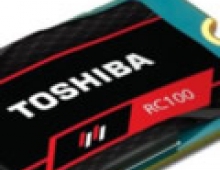OCZ PC2-9200 FlexXLC
3. Testbed
In order to test the memory modules, we used the following setup:
- CPU: Intel XE6600 @ 2.4GHz
- Motherboard: eVGA 680i LT
- PSU: OCZ GameXStream GXS600 SLI-Ready
- VGA: MSI 7600GT Silent (stock memory/core timings)
- HDD: WD 800JB
- OS: Windows XP SP2 with all the latest updates installed
While for benchmarking, we used:
- Memtest86+ v1.70
- Sisoft Sandra 2007 SP1
- RightMark Memory Analyzer v3.70
- ScienceMark 2.0 Memory Benchmark
- Pov-Ray v3.70 Beta15
- SuperPI XS Mod v1.50
The eVGA 680i LT motherboard offers many possibilities of overclocking both memory and CPU, either synced or not. For most of our tests, we set the memory and CPU to un-synced and tried to find the best possible, lower memory timings. Before benchmarking, each test had to pass a 30 min burn-in test from Memtest86+ v1.70 (DOS) without producing any errors. Furthermore, we tried the Pov-Ray benchmark and Orthos Stability test under Windows to ensure that our system was rock solid. All benchmarks were run twice and all displayed results are the average of both measurements.
The SPD as reported by Everest Ultimate Edition are set only for 270MHz and 400MHz with CL4 and CL5 respectively:

The memory modules can also work at 1T with Nvidia based chipsets, for example @ 400MHz very low timings are possible, down to 4-4-4-12:

OCZ suggests the following memory timings for the different chipsets, that allow up to 1150MHz memory speed:
Detailed Settings |
|
i965 Chipset |
i680 Chipset |
CAS 5 |
CAS 5 |
TRDC 5 |
TRDC 5 |
TRP 5 |
TRP 5 |
TRAS 18 |
TRAS 18 |
TWR 6 |
TRRD 6 |
TRRC 42 |
TRC 33 |
TRRD 11 |
TWR 6 |
TRTR 11 |
TWTR 11 |
TRTP 11 |
TREF 3.9 |
TWTP 11 |
|
Lastly, here are the test results with FSB and used voltage. In order to get low CL4 timings at 1067MHz, we had to use 2.40V memory voltage and of course the highest DDR2 1250MHz can be achieved only with 2.50V, rather high for a memory module.

At DDR2 1250MHz, our CPU FSB and RAM were synced (1:1) and we overclocked the CPU up to 2.812GHz

Below are the memory timings as reported via CPU-Z






















